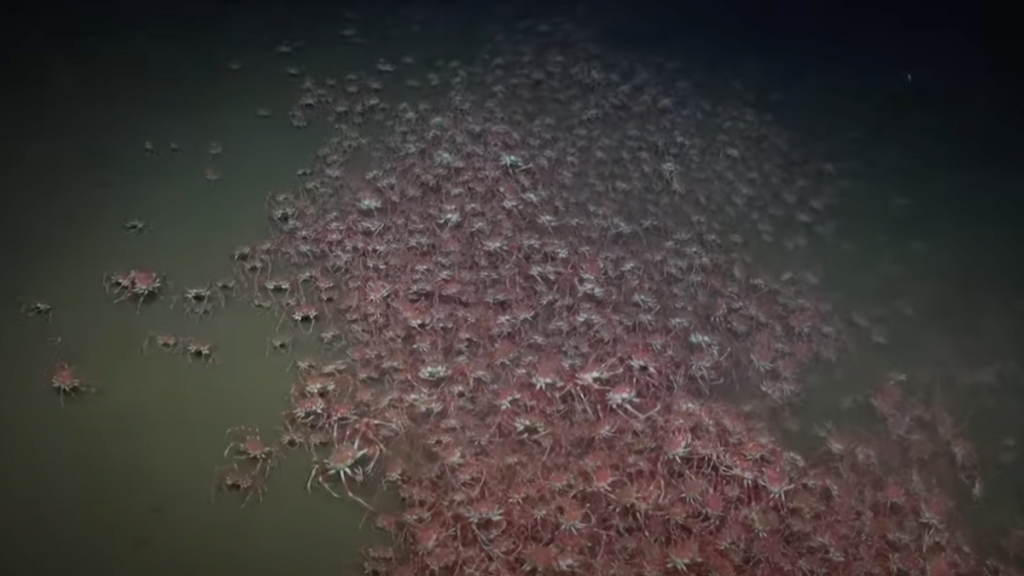A deep sea robot is exploring remote underwater canyons. And the biodiverse sights are astonishing.
On a 55-day expedition off the Chilean coast, scientists aboard the Schmidt Ocean Institute’s 272-foot exploration vessel, Falkor (too), are dropping a high-tech remotely operated vehicle into the dark depths. It’s here, in a region where tectonic plates collide, earthquakes rumble, and methane and chemicals seep from vents, that isolated ecosystems can flourish.
“Along this Chilean margin, unexplored submarine canyons likely host biodiversity hotspots,” the institute says.
The ROV SuBastian — a 3,200-kilogram (7,055-pound) machine with a slew of scientific instruments — is filming footage and collecting samples of these mysterious habitats between Oct. 11 and Dec. 5. The mission focuses on deep sea seeps — where gas from decomposing creatures escapes through the seafloor — allowing methane-munching microbes to flourish and establish alien ecosystems thousands of feet below the ocean surface. The researchers will also examine hydrothermal vents, found near the boundaries of Earth‘s tectonic plates, which emit hot, chemical-rich fluid into the ocean. These, too, often harbor rare marine communities.
Mashable Light Speed
The first clip below shows an impressive, uncountable amassing of crabs. “Yesterday, we came across a crazy conflagration of crabs 400 meters down. Migration route? Mating season?” Jeffrey Marlow, a biologist from Boston University and chief scientist of the expedition, posted online.
The following footage, recently filmed by the ROV, shows shrimp fighting for a deep sea meal (don’t count out the smallest competitor), a curious Humboldt squid, and beyond.
You can follow these livestreamed “divestreams” on YouTube.
Expeditions to the deeps regularly return with rare or unprecedented sightings. “We always discover stuff when we go out into the deep sea. You’re always finding things that you haven’t seen before,” Derek Sowers, an expedition lead for the National Oceanic and Atmospheric Administration’s Ocean Exploration mission, previously told Mashable last year.
Ocean research organizations are now vigilantly documenting and mapping the deep sea. Scientists want to shine a light — literally and figuratively — on what’s down there. The implications of knowing are incalculable, particularly as deep sea mineral prospectors prepare to run tank-like industrial equipment across parts of the seafloor. For example, research expeditions have found that ocean life carries great potential for novel medicines. “Systematic searches for new drugs have shown that marine invertebrates produce more antibiotic, anti-cancer, and anti-inflammatory substances than any group of terrestrial organisms,” notes the National Oceanic and Atmospheric Administration.
